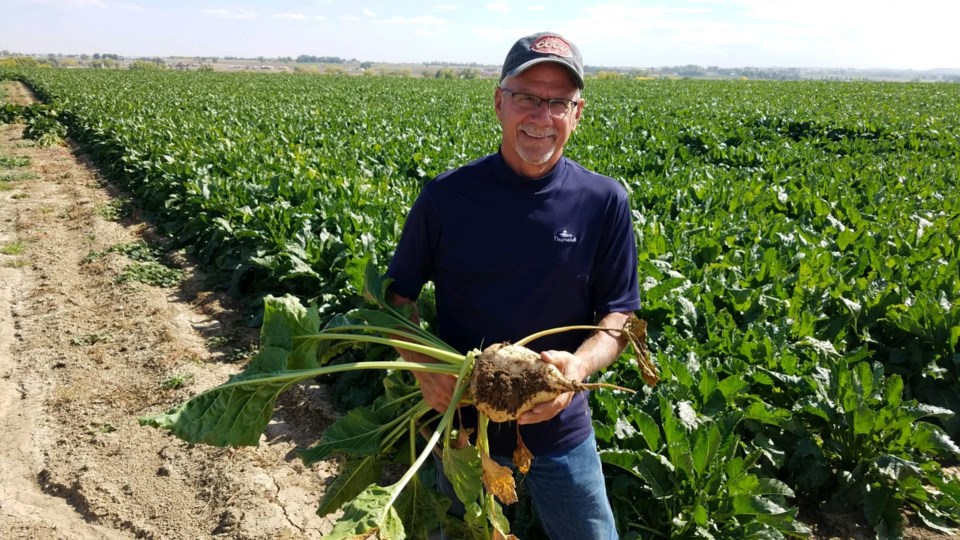The group that represents Boulder County’s sugar beet farmers cheered a decision by the county commissioners Tuesday to allow a controversial pesticide to continue to be used on local sugar beets grown on county open space.
To let farmers use neonicotinoid seed coatings on sugar beet plants will keep their operations economically viable, said Rebecca Larson, vice president/chief scientist for the Great Western Sugar Cooperative, which represents 850 sugar beet farmers across the county.
“I praise the Boulder County Commissioners for making policy decisions based on sound science and facts,” said Larson.
She and several Longmont area sugar beet growers lobbied against a Boulder County Parks and Open Space recommendation to ban the use of neonicotinoid pesticides on county parcels. County officials said that the pesticide — also called neonics — was linked to the death of honey bees and other insects.
But staff members later backed off their early recommendation and said neonics should be approved for farmers who are under contract to Western Sugar Cooperative which uses neonics on sugar beet crops.
The commissioners on Tuesday agreed to make an exception to the county’s cropland rules and let neonics seed coatings be used by farmers working under an agreement with Western Sugar Cooperative.
“This well thought out decision will enable economic and environmental sustainability for the sugar beet farmers in the county,” Larson said via email.
Local farmers have said neonics is the most effective pesticide to guard against voracious insects destroying sugar beets. Without neonics, farmers would have to apply other less-effective pesticides more often which would heighten health risks.
Longmont sugar beet farmer Paul Schlagel told the Leader in October that neonics is a “perfectly safe and effective product.” Schlagel grows corn and sugar beets on about 100 acres of Boulder County Open Space parcels. “But there seems to be a movement that is determined to get rid of it.”
The commissioners voted that the use of neonics should be restricted on Boulder County Parks and Open Space agricultural lands. Farmers under contract with Western Sugar Cooperative can use neonics seed coatings and can also use neonics in other circumstances on “a case-by-case basis, under limited circumstances,” according to the updated Cropland Policy update.
Commissioners also agreed to continue to allow previously approved genetically engineered (GE) corn and sugar beet crops to be grown on county open space. However, “any proposed GE crops must undergo a rigorous review process by (the county) before being allowed on county-owned agriculture land,” the policy states.



